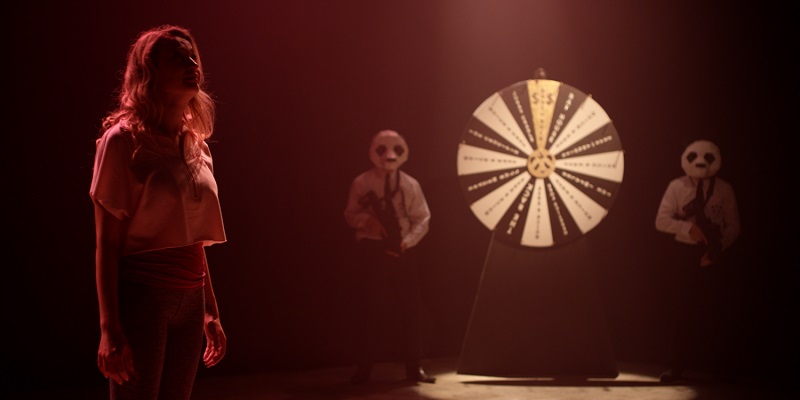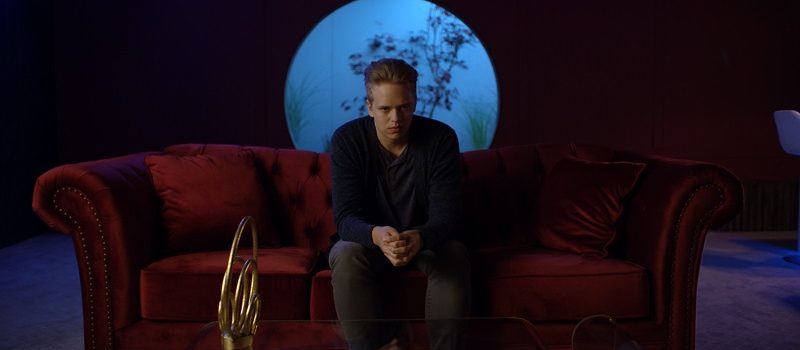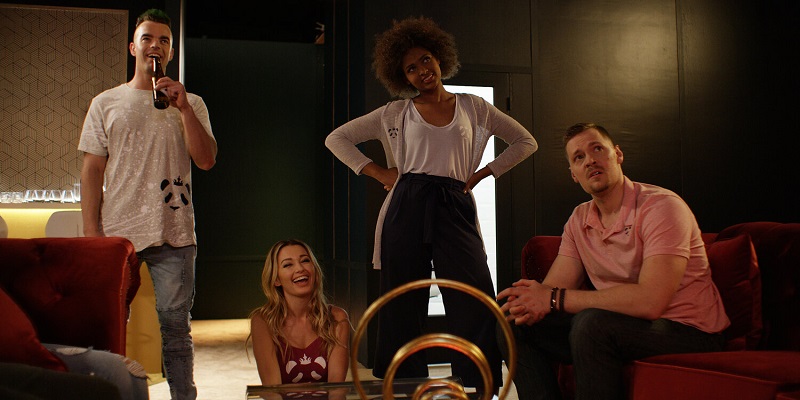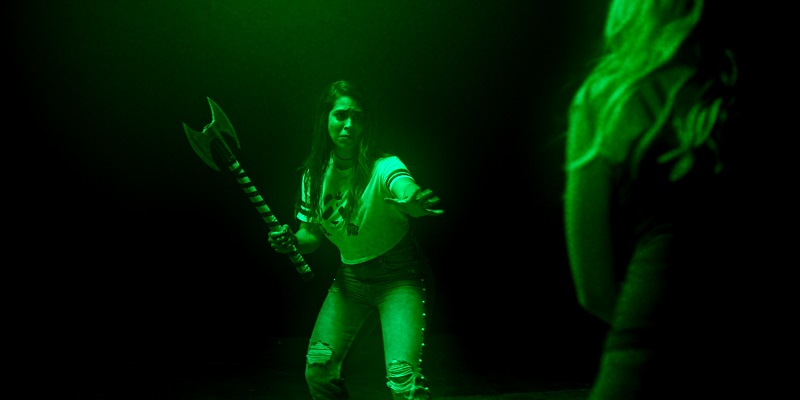It is hard to know where to start with the film Funhouse. There’s just terrible film quality. It doesn’t look like it was shot on film and it also doesn’t quite appear as if it was shot on digital. Given the film’s budget, I would guess the latter, but still, the picture isn’t as crystal clear as one would expect from a digital shoot. Then, the people start talking and we learn our utterly despondent premise.
Eight C-minus celebrities are kidnapped (after signing a waiver to appear on a reality show, largely at the urging of their agent) and awake in a Big Brother-type house, except they cannot leave. Why you ask? Well, because the person behind it all will kill you. Period. If you try to do anything other than the task at hand for members of this celebrity house, the cost is death. This becomes clear by the horrific example in the early moments of Funhouse.
Even worse still, filmmaker Jason William Lee (The Evil In Us) attempts valiantly to inject emotion into this moment. It’s a disaster that comes off as horribly flat. People are being murdered by a psychopath and it’s broadcast for the world to see on the internet and viewers are given crocodile tears. Really? Someone’s just gotten axed by you and you’re not a killer. Surely, you can summon the correct tool in the actor’s toolbox to appropriately emote. Nope! Not this group…
The center of this universe is Kasper (Valter Skarsgård, son of Stellan Skarsgård of Thor fame). He is our “in.” The Swedish actor’s character had the misfortune of being the ex-husband of a singing sensation. Kasper used that notoriety to attempt a musical career himself. He managed to have a hit song or two, but as Funhouse commences, he’s in his agent’s office and when it comes to opportunities, there is little on the table to even call prospects. So, he reluctantly agrees. When he comes to, he’s in a white room, dimly lit, with a public address announcer requesting everyone’s presence in the common room.
There’s also Lonni (Khamisa Wilsher), a Bachelorette-type contestant, Christopher Gerard’s Headstone (borrowed from the Bam Margera Jackass playbook), Ula (Karolina Benefield)—a budding Instagram model whose followers, she believes, will increase exponentially with her appearance on Funhouse. There’s also a mysterious Cat Zim (Amanda Howells), Ula La More’s Dex “El Shocker” Souza, Gilda ‘The Mad’ Batter (Debs Howard), and of course, a YouTube star in Dayleigh Nelson’s Nevin Evensmith.
After that first initial terrifying and shocking “exit,” everyone knows that this is for real. The green-screened Funhouse Panda, let’s just say this, enjoys a good human pinata. There’s also a running commentary (also a la all those Bachelor and Bachelorette’s video blogs) called Pete Sake (Bradley Duffy). He seems to take all this horrorshow in stride, even at one point, descending into humor as a way of coping with the madness.
Oh, did I mention that the last person standing will receive $5 million? We’re expected to believe that these particular individuals in this octet are comprised of souls who are rightfully terrified by what is happening. But also, shallow enough to keep on playing for that big payday.
Meanwhile, keeping the contestants “in line” are people with machine guns who are sporting panda masks. It all adds up to one of the more confusing movie moments that I have ever lived through. People killing other people for profit or sport is nothing new. I’ve seen Judgement Night and of course all of the Purge movies. The thing is, those films established a landscape outside of the horrors that allow the viewer the freedom to cheer on death and destruction while clinging to some form of humanity.

Funhouse looks and feels too cheap to have any kind of sentiment or statement resonate. Somewhere in there, filmmaker Lee hopes that audiences will make the connection about reality TV, turning cameras on ourselves, greed, and of course, the perils of reality television. The problem is that the entire operation appears so grounded in public access television feel to it that any kind of profound response never occurs.
The ensemble mails it in, the special effects (even the gore) have been better in middle school video production. Funhouse is not fun. Funhouse looks and feels absurd. It is one of the worst movies I have seen in a decade.
Grade: F



